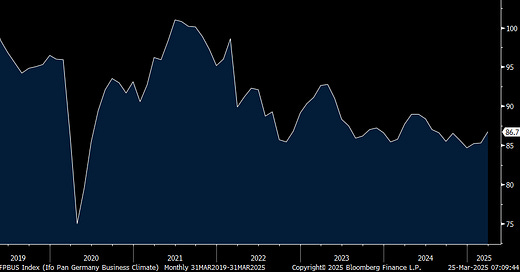The author of the "Mar-a-Lago Accord" theory speaks/KB Homes talks about its business/German confidence lifts
By now I'm sure you've heard about the concept of the "Mar-a-Lago Accord," a reworking of the financial system with the US dollar at the center of it. Well, the whole idea came from a paper that the current Chair of the White House Council of Economic Advisors, Stephen Miran, wrote last November and with the help of Zoltan Pozsar. The paper was titled "A User's Guide to Restructuring the Global Trading System."
In Miran's mind, "The root of the economic imbalances lies in persistent dollar overvaluation that prevents the balancing of international trade, and this overvaluation is driven by inelastic demand for reserve assets. As global GDP grows, it becomes increasingly burdensome for the United States to finance the provision of reserve assets and the defense umbrella, as the manufacturing and tradeable sectors bear the brunt of the costs."
Also in the paper, he advocates tariffs and the "possible implementation schemes" and how it will influence the dollar now (should go higher) and thereafter (will be an attempt to get it lower). He also gives his idea about strong arming foreign holders of US Treasuries to take 100 year bonds in return for the holdings they have and a defense security guarantee we will give them. And the concept of revaluing the 8,000 tons of gold that the US Treasury/Fed holds was also raised by Miran and even the possibility of selling some of it.
In the paper he said "As currency accords are typically named after resorts where they are negotiated, like Bretton Woods and Plaza, with some poetic license I'll describe the potential agreement in the Trump Administration as others have done as the prospective "Mar-a-Lago Accord."
As to what it would do, "Such a Mar-a-Lago Accord gives form to a 21st Century version of a multilateral currency agreement. President Trump will want foreigners to help pay for the security zone provided by the United States. A reduction in the value of the dollar helps create manufacturing jobs in America and reallocates aggregate demand from the rest of the world to the U.S. The term-out of reserve debt helps prevent financial market volatility and the economic damage that would ensue. Multiple goals are accomplished with one agreement."
Keep reading with a 7-day free trial
Subscribe to The Boock Report to keep reading this post and get 7 days of free access to the full post archives.



